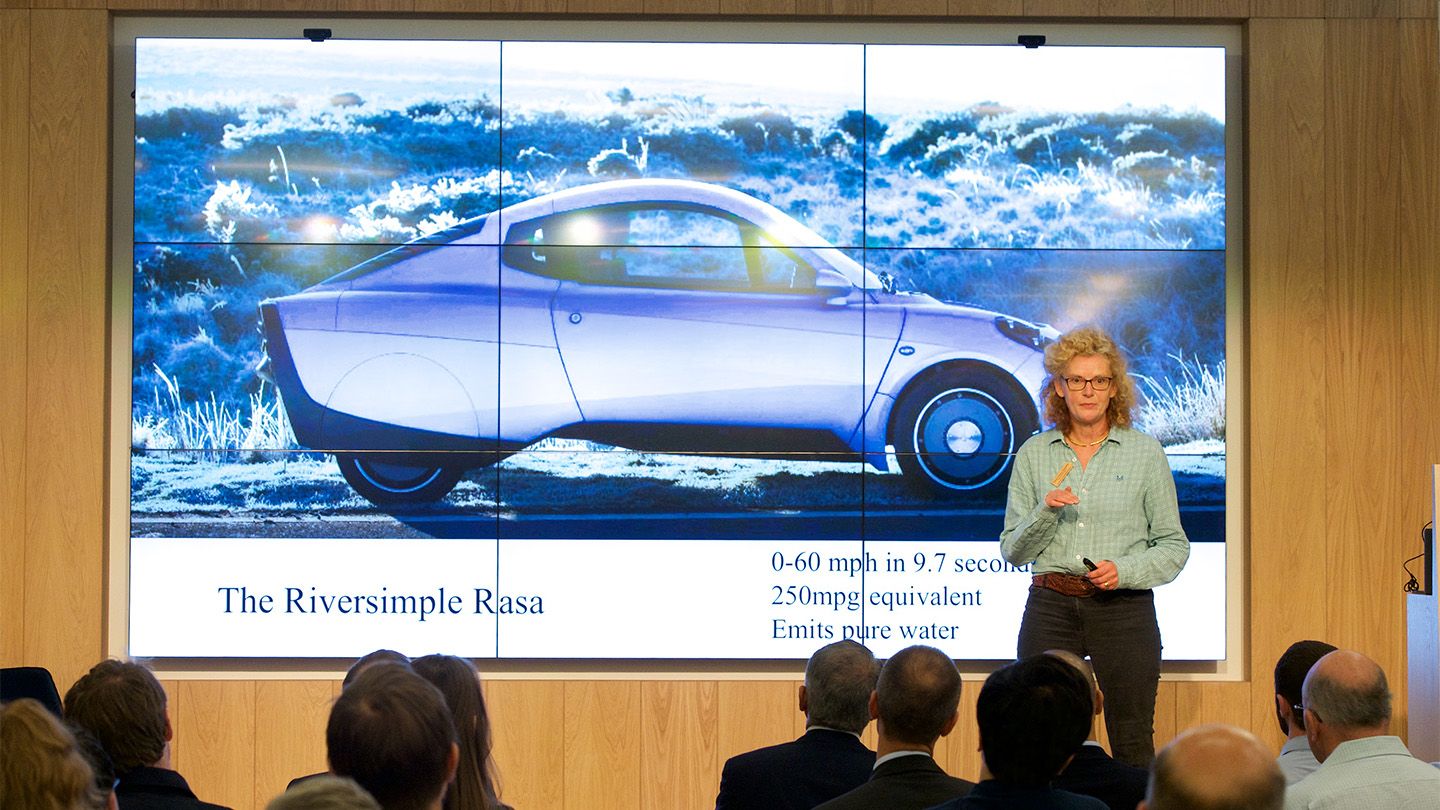
Growth
Riversimple: the road to cleaner living
In the latest in our series profiling the graduates of the Unreasonable Impact programme, we talk to Fiona Spowers from hydrogen car manufacturer Riversimple about the company’s “radical business model”, moving towards zero emissions – and how it’s helping to build a cleaner future for all.
“Our goal is to eliminate the environmental impact of personal transport. Not make it better, eliminate it,” says Fiona Spowers, Director of hydrogen car manufacturer Riversimple.
It’s an ambitious target, and one the company has been working towards for the last 18 years. To put that in perspective, it has taken far larger car manufacturers 25 years to get to the point of producing hydrogen-fuelled vehicles. Riversimple is well on its way with its first model, a small two-seater.
Riversimple was one of the first companies to join Barclays’ Unreasonable Impact programme – a worldwide network of accelerators dedicated to scaling growth-stage entrepreneurs whose ventures have the potential to employ thousands worldwide while solving some of our most pressing societal and environmental challenges.
Run in the Americas, the UK & Europe and Asia Pacific, the programme connects entrepreneurs to a global community of world-class mentors and industry specialists, including experts from across Barclays.
“Our proposition is radical – a radical business model and never-before-used technology,” explains Spowers. Riversimple’s lightweight, hydrogen cell-powered car, the Rasa (short for Tabula Rasa, which is Latin for ‘clean slate’), is, according to Riversimple, three times as efficient as anything else out there.
Spowers continues: “This is the cleanest car yet designed for everyday domestic use.”
While still in its testing phase, the manufacturer will trial the car by inviting the general public to take one for a month to use it in everyday situations and then provide feedback.
The company’s plan is that when it comes to designing for volume production, they can use this information to ensure they are giving customers exactly what they want.
“Nobody’s done that before in the car world,” says Spowers. “The big manufacturers don’t allow anyone near a car until only the final decisions are left, like the colour of the carpets.”
Like the Rasa, Riversimple’s business plan is also unique. They may be the only manufacturer that hopes never to sell a car. They will be offering their vehicles on a subscription service basis rather than selling them. Customers will pay for the car monthly, over a pre-agreed period, and that will cost about the same amount as owning and running a basic family car.
Unreasonable Impact: “Barclays has always pulled out all the stops”
“When we were first approached by Barclays to attend the programme, we didn’t really know what to expect,” confesses Spowers. “But we were so grateful to discover we were being treated as entrepreneurs. That status is a real confidence-giver. We also realised how encouraging it feels to be surrounded by people who, like us, are developing technically ambitious hardware with an aim to make a positive impact on society.”
On the overall experience of attending the Unreasonable Impact programme, Spowers is impressed by the level of support that Riversimple received. “We were very impressed by the profound individual attention each of us got from the Barclays specialists and mentors,” she recalls. “Every day you could have one-to-ones with a diverse range of remarkable people.”

Riversimple’s the Rasa
Barclays has also provided ongoing support to Riversimple after the programme, ensuring the company has everything it needs to build a more sustainable future. “When we’ve gone back to Barclays for advice on any aspect of our business, they’ve always pulled out all the stops to help,” says Spowers.
For Spowers, perhaps the most rewarding part of the programme was developing a new-found perspective on her own business.
“We realised that it’s about making the efficiency of vehicles profitable. For a business to work, it has got to make more money doing the right thing than doing the wrong thing. That’s the secret – and we came away understanding that.”